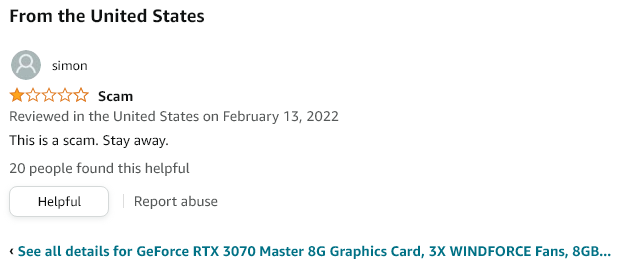chameleoneel
Supreme [H]ardness
- Joined
- Aug 15, 2005
- Messages
- 7,602
Prices have come down a bit on certain high end stuff, like 3080's, 6900xt, 6800 xt.
But lower products have all come up in price. $900 6700xt. $1,000 3070. $1100 3070 ti. etc.
But lower products have all come up in price. $900 6700xt. $1,000 3070. $1100 3070 ti. etc.
![[H]ard|Forum](/styles/hardforum/xenforo/logo_dark.png)
